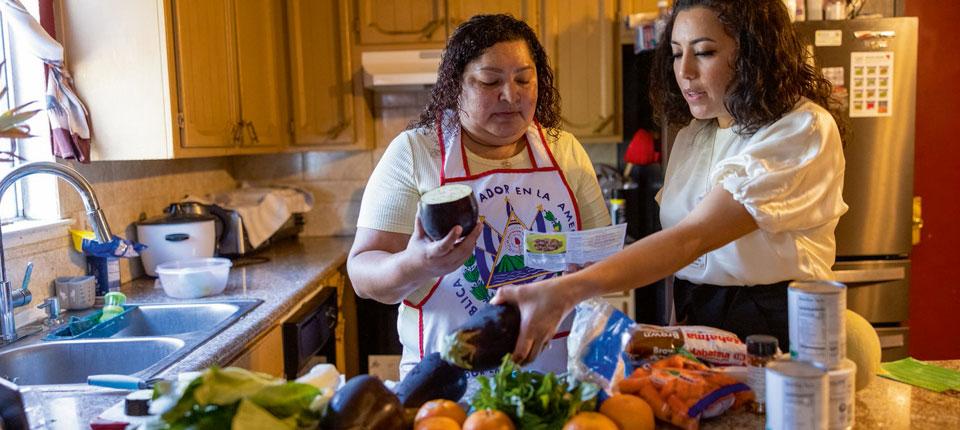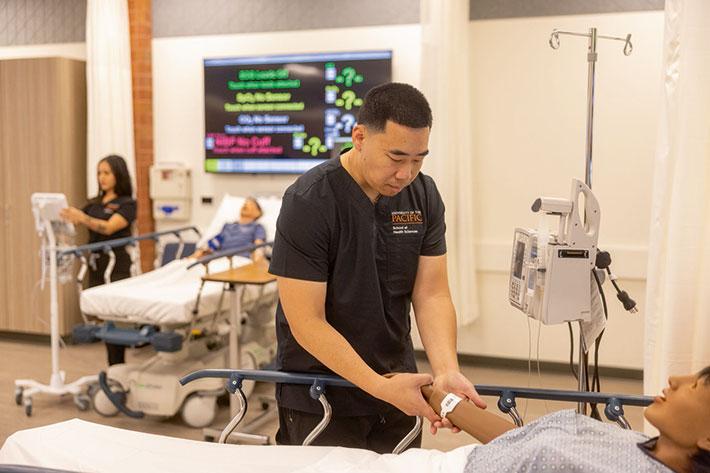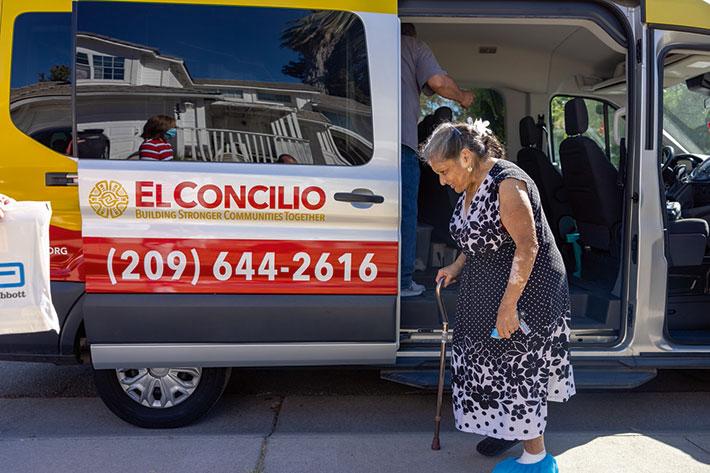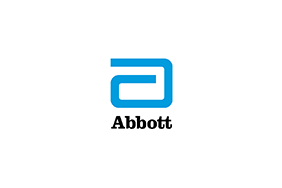What Happens When Communities Unite To Fight Diabetes?
We connected local organizations in Stockton, Calif., to form a diabetes management program that is getting results.
Published 08-08-24
Submitted by Abbott

No one person, one group or one approach stands a chance against diabetes, a disease that threatens to sap the "quality" out of "quality of life" for hundreds of millions of people around the world.
It’s time to stand together. Since 2019, we’ve been working with a supergroup of community organizations in Stockton, Calif., to unite, to share knowledge, to trust in each other. To take power back from a disease that impacts a disproportionately large segment of the city’s most vulnerable residents.
To find the root causes of diabetes and other chronic diseases and target them for removal.
“For me, it’s personal,” says Ana Garcia, a social worker in Stockton who earned a master’s degree from the University of the Pacific after receiving an Abbott Fund scholarship. She lost her father to complications from diabetes while she was working toward her degree.
“I want to make sure we give everyone that fighting chance.”
So far, our community-led diabetes management program has made progress that makes a strong case for combining forces:
- Health screenings for more than 1,400 Stockton residents at pop-up diabetes care clinics in the community.
- A “food as medicine” nutrition program that has helped hundreds of people lower their average blood sugar (HbA1c) and build healthy habits.
- Increased access to care in the form of free transportation to and from appointments.
- A stronger future pipeline of local healthcare workers thanks to Abbott Fund scholarship students who sub-specialize in diabetes and commit to working in Stockton for at least two years after graduation.
“There always has to be an agent for change, someone to drive the effort and have the vision,” says Rajul Patel, a faculty member in the University of the Pacific’s Thomas J. Long School of Pharmacy who oversees the community diabetes care clinics. “I’ve seen fundamental and lasting changes directly as a result of the partnership that Abbott has with Stockton.”

How Teamwork Linked Up Our Approach to Diabetes Management
What happens when communities come together to fight diabetes?
We were game to find out. In Stockton, we began making important connections via the Abbott Fund, the philanthropic arm of Abbott. High-impact community organizations joined us at the table, including the Emergency Food Bank of Stockton, El Concilio, APSARA, Community Medical Centers and the University of the Pacific.
From there, it was just a matter of getting this group of standout performers to harmonize.
The true strength of the program, says Tammy Shaff, director of community health at Dignity Health St. Joseph’s Medical Center, comes from “leveraging the resources and coordinating the approaches and stacking those different opportunities together to make a bigger impact.”

How Healthy Food Delivery Connected to Better Habits
Stockton residents Barbara White and Arnetta Brown have felt the impact. So have hundreds of others like them who have been a part of our Healthy Food Rx program in partnership with Public Health Institute, Community Medical Centers, and the Emergency Food Bank of Stockton.
We based the program on a pretty simple premise: It’s extremely tough to make healthy choices if healthy foods aren’t really available to you. Healthy Food Rx delivers a box of fresh produce, lean meats and pantry items directly to people’s homes twice a month.
Many people are referred to the program from the community diabetes clinics because the demand for nutritious foods — and education about what goes into a healthy diet — is so high.
“A lot of patients ask, ‘Why don’t you give me examples of what to eat?’ or ask a doctor, ‘Why don’t you give me a list of what to eat?’ Well, this is doing exactly what they always asked for,” says Cecilia Lopez Perez, a health educator with Community Medical Centers who has been working with White to help her manage her diabetes.
Results have been eye-opening. People with uncontrolled diabetes who participated in Healthy Food Rx saw a decrease in their HbA1c (a number representing the glucose level in their blood) — by a statistically significant average of 0.8%.
Nutrition educators at the food bank build each box around recipes that are developed with guidance from the California-based Public Health Institute Center for Wellness and Nutrition.
“Essentially, we have a list of foods in our mind — what might be good, what’s in season, what’s low on the glycemic index, what’s high in protein,” says Alex Marapao, one of the nutrition educators (and also an Abbott Fund scholar earning her master of science in nursing from the University of the Pacific).
“We ask ourselves, ‘What recipe will they enjoy?’ And, above all, what’s culturally appropriate? We try to make 50%-75% of the food ... fresh fruits and vegetables.”
And, whenever there’s an opportunity, they’ll introduce something not just fresh but new. Arnetta Brown, the Healthy Food Rx participant, lights up with laughter recalling the first time she encountered plant-based sausage.
“I gave the first one to my dog,” she says. “But I felt guilty, so then I tasted it. And it tasted pretty good. I liked it. Now the dogs know — they’re not getting it.”
Over the course of the rest of the conversation, Brown rattled off glucose numbers that were impressively in-range, showing her progress in managing her diabetes. But statistics are just one measure of success. Others show up on a more personal level.
“You need encouragement. When stress hits you — unforeseen circumstances — you’ll be surprised at what you do,” White says. “And you need that way to come together.”
With support, with encouragement, the journey to better health becomes an easier one to make. In fact, some of the biggest strides White took during Healthy Food Rx were ones she didn’t even notice at first.
“I noticed I was getting smaller ... I was eating healthy and eating less,” White says.
“So I asked my doctor, ‘Can I weigh myself?’ I had lost 10 pounds — and (it felt like) I didn’t even try. That’s when it hit me: ‘You must’ve been good.’ ”

How Health Screenings Intersected with Education
Before we could do any good, we set out to understand Stockton’s biggest needs.
That’s where the University of the Pacific-led diabetes care clinics came in. Rajul Patel and a team of pharmacy faculty, staff, students and volunteers set up clinics throughout the year in church spaces, gymnasiums and other communal spaces.
The team provides free testing for everyone who attends. They use glucometers and a questionnaire to screen for diabetes or prediabetes. They check HbA1Cs, cholesterol and blood pressure. They offer vaccinations if needed.
When someone who attends shows signs that point to prediabetes or diabetes, clinic staff can refer them to the other community partners, who are also in attendance.
All of which might sound routine. But, to those who don’t have access to healthcare, the experience is profound. Many who show up at the clinics don’t know they have diabetes, or that they need specialized care to manage the disease. They leave with crucial, maybe even life-changing new information they can act on.
Meanwhile, the experience is just as much of a revelation to some of the U. of P. students who volunteer at the clinics. For them, it’s a first-hand look at a public health crisis unfolding in their backyard.
Outside of the clinics, our Abbott Fund scholars get a similar reality check during rotations in local hospitals or from the hands-on diabetes research project they must present as part of their studies. (More than 50 social work, nursing, and clinical nutrition students sub-specializing in diabetes care have been awarded Abbott Fund scholarships and have committed to working in Stockton for at least two years after finishing school.)
And yet, the scholars we spoke with say it only strengthens their resolve to meet the diabetes epidemic head-on.
Says Ana Garcia, the Abbott scholar and U. of P. alum: “It would be amazing to see this program going nationally. I think it should be part of every university’s curriculum.”

How Drivers Became Part of the Care Team
Early on, the team also identified transportation as a key piece of the diabetes management puzzle. To that end, we needed drivers like Dora Wilson.
But, when you are someone’s only hope of getting to a doctor’s appointment or a dialysis clinic, when you educate that someone on healthcare or a government service they didn’t know they were eligible for, when you transition between English and Spanish to talk with them — are you really just a driver?
“I love what I do,” Wilson says. “It doesn’t feel like work.” She drives for El Concilio, a Stockton-based nonprofit that, through the Abbott Fund, provides free rides for people living with diabetes so they aren’t stranded from the care they need.
The view from Wilson’s van on an elevated stretch of Interstate 5 just about screams “California.” Sunny sky above, a landscape dotted with palm trees and spiked with Italian cypress, and, off to the east, the regal backdrop of the Sierra Nevada mountains.
But that view is a metaphor, too, one that illustrates the challenge El Concilio is trying to help solve. Stockton, a city of 322,000 people, sprawls for miles across Northern California. Some of its people have a long way to go — often too far, or far too expensive — to find medical care.
“One of my clients told me that, from where she lives, it’s three buses to get to her doctor’s appointment,” Wilson says. “She has to leave two hours before her appointment just to make it on time. And then it’s another two hours back home.”
Time is not the only critical factor. Wilson says the client also opened up to her about getting mugged on a walk home and fearing the thought of traveling alone ever since. Wilson does what she can to make her passengers feel comfortable: “I want them to know I’m here, I’m going to take care of you and make sure you’re safe getting from Point A to Point B.”
Driver and rider. Educator and student. Medical technology company and community health worker. Together in the battle for better health.
No one should have to fight diabetes alone.

Abbott
Abbott
About Abbott and the Abbott Fund
The Abbott Fund is a philanthropic foundation established by Abbott in 1951. The Abbott Fund's mission is to create healthier global communities by investing in creative ideas that promote science, expand access to health care and strengthen communities worldwide. For more information, visit www.abbottfund.org.
Abbott is a global, broad-based health care company devoted to the discovery, development, manufacture and marketing of pharmaceuticals and medical products, including nutritionals, devices and diagnostics. The company employs nearly 90,000 people and markets its products in more than 130 countries. Abbott's news releases and other information are available on the company's website at www.abbott.com.
More from Abbott

